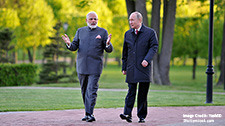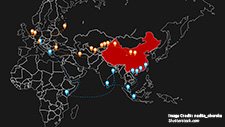Fifteen years ago, Swedish migration authorities faced a problem. They had seen a marked uptick in asylum seekers from Uzbekistan who claimed to be persecuted for their religious beliefs. That was not in itself surprising: Especially after an attempt on President Islam Karimov’s life in 1999, the government in Tashkent was well known for repressing Islamic groups that diverged from the country’s traditional, tolerant version of Islam.
Terror in Stockholm
Svante E. Cornell
Last week’s terror attack in Sweden should raise important questions about how the West defines its enemies.
Last Friday, an ISIS supporter rammed a truck into a department store in the heart of Stockholm, Sweden, killing four people and injuring 15. That same evening, news broke that Swedish police had arrested a 39-year old man from Uzbekistan for complicity in the attack. By Sunday morning, Swedish media reported that the man’s social media account indicated his support for both the Islamic State and the Islamic Party of Liberation, Hizb-ut-Tahrir.
Related Publications
-
ISDP Annual Report 2023
ISDP’s Annual Report for the year 2023. We look back on 2023, a year in which tensions and conflicts captured the strategic space in ISDP’s focus areas, making headlines around […]
-
Promise And Peril In The Caucasus
America’s national security bureaucracy separates the Caucasus and the Middle East into different bureaus, with Central Asia in yet another office. This is part of the reason the U.S. has […]
-
The Limitations of India and Russia’s Transactional Relationship
Since Russia’s unprovoked invasion of Ukraine in February 2022, it might seem as though ties between India and Russia have strengthened. While much of the West isolated Russia, India-Russia energy […]
-
IN DEFENSE OF THE LIBERAL INTERNATIONAL ORDER
In recent years, the geopolitical fight for global economic, diplomatic, and institutional control has acutely intensified, accentuating the crisis in the existing post-World War II Liberal International Order (LIO), championed […]
-
China in Eurasia: Revisiting BRI amidst the Russia-Ukraine Crisis
This paper discusses China’s trade and connectivity plans under the Belt and Road Initiative (BRI) in the Eurasian region and the impact of the Russian invasion of Ukraine on Chinese […]




